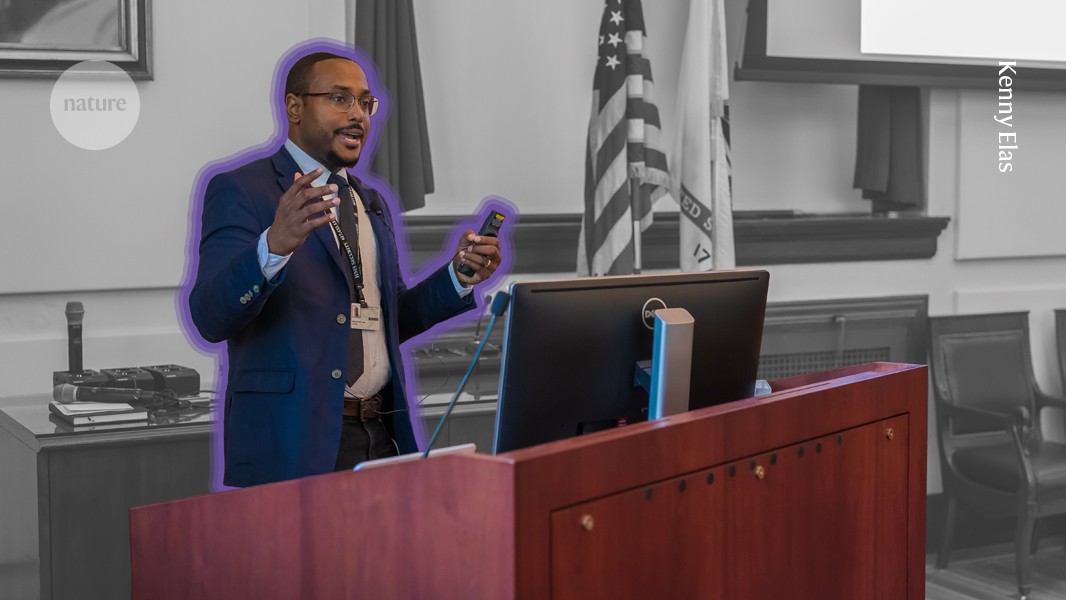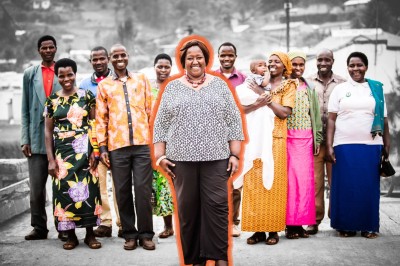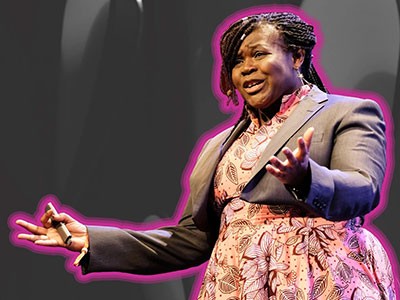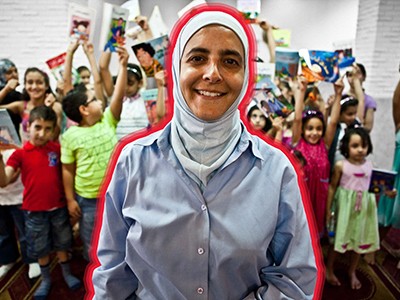Early in his postdoctoral programme at Harvard Medical School (HMS) in Boston, Massachusetts, Frankie Heyward realized how isolated he felt as the only PhD holder in the department who identified as Black. In 2020, after a chance meeting with another Black postdoc in a lift, Heyward decided to build a community for people like them, and set up the Harvard Black Postdoc Association (HBPA). Later that year, after the murder of George Floyd, a Black man, by a white police officer, Heyward penned an open letter to an HMS dean on the need to address institutionalized racism in academia, which the dean then shared with the HMS community. Subsequently, Heyward and a group of seven other Black postdocs at Harvard submitted a proposal for Black postdoctoral support to the HMS deans. The HBPA, at the time a small mailing list, soon attracted many new members. HMS committed US$5,000 in funding to the organization, and Harvard Affiliate Hospitals promised future financial support. Wanting a community that transcended institutional boundaries, Heyward founded the National Black Postdoctoral Association (NBPA), a non-profit organization, in 2021.
Collection: Changemakers in science
The NBPA provides Black academics with personal and professional opportunities to connect. Heyward, who is now a neurobiologist at the University of Texas Southwestern Medical Center in Dallas, says it’s important to foster connections with colleagues you can relate to, not only for your mental health and well-being, but to enable future collaborations and academic success. For example, some junior members of the NBPA have improved their grant-writing skills by looking at successful grant proposals to foundations and the US National Institutes of Health, shared by senior members.
“Science is a team sport,” he says. “The sooner you can set up that network, the better — fight to establish your community.”
What is the great passion that has driven you as a scientist?
My current work is trying to understand why people weigh what we weigh. I’m trying to find out what encodes the body-weight setpoint, which is the body weight of an individual that is rather stable over time, although it can be shifted.
Since university, I’ve been fascinated with epigenetic mechanisms that influence gene expression without altering the DNA sequence, such as those involving DNA methylation, histone modifications and chromatin remodelling.
How Rwandan paediatrician Agnes Binagwaho fights racial stereotypes in global health
I’m currently testing a model in which prolonged changes in body-weight setpoint are encoded by persistent epigenetic alterations to genes in the populations of neurons in the brain that control appetite.
Ultimately, I’d like to determine whether these findings could be used to develop therapeutic interventions to treat obesity and ageing-related loss of hunger signalling.
Who has been your biggest influence or mentor and why?
My dad, who taught me to be the hero you hope for.
Growing up, he hated police officers, but he decided to challenge himself and become one of the good ones. He eventually became one of the highest-ranking officers in Philadelphia, Pennsylvania. My dad’s father wasn’t an active part of his life, and his family was socio-economically disadvantaged. But if you ask me, although he never really experienced having a father, he’s perhaps the best father I could’ve had.
He saw what he was lacking, and what he didn’t like about the world, and decided to be the change that he wanted to see. I draw from that attitude in my approach to mentorship and my diversity, equity and inclusion (DEI) efforts. When I was experiencing a lack of community during my postdoctoral programme, I felt compelled to establish something for myself and others.
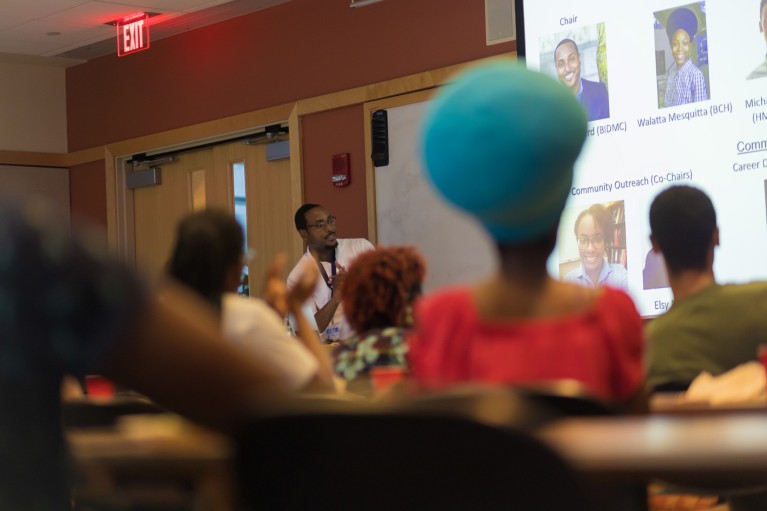
Neurobiologist Frankie Heyward speaks at the 2022 Harvard Black Postdoctoral Association symposium.Credit: Kenny Elas
When did you realize you wanted to tackle inclusion in science?
I found HMS very welcoming when I joined. But I was the only Black PhD holder doing research in my department and often wondered whether I was the only Black person in my building. When socializing and collaborating, my colleagues could tap into their groups of peers with similar identities and experiences, but I had to do without. Realizing that this isolation was hindering my well-being and limiting my career opportunities gave me the idea for the HBPA, and eventually the NBPA.
The NBPA has a lot of outreach initiatives and provides mentorship to Black trainees who are experiencing a career crisis and need someone to talk to. Around two years ago, there was a really tragic string of Black trainees taking their lives. We got the sense, from in-person conversations and research on Twitter (now called X), that early-career Black scientists didn’t have adequate support. Out of this, the NBPA’s emergency-support programme was born last year. We now have around 80 volunteer mentors and have just received US$50,000 from the Burroughs Wellcome Fund, a non-profit organization based in Research Triangle Park, North Carolina, to give our mentors more-formal training and to help trainees in need with the costs of seeing a mental-health professional.
Why do you invest time in DEI work?
Engaging in service work requires deeper motivation. For me, it was realizing how necessary this community is for so many people.
It’s not been easy to invest time in this sort of work. I’ve juggled it, perhaps at the expense of some career opportunities and family time. But I was propelled by the feeling that if I didn’t do it, it wasn’t going to get done.
Maggie Aderin-Pocock on diversity: ‘It’s hard to find an argument against it’
Many people have told me how much the programmes of the NBPA have done for them. I know of one young postdoc who, after presenting his research at the NBPA Research Showcase and Social Club, a monthly online symposium that highlights the work of NBPA members, was noticed by a recruiter at Yale University in New Haven, Connecticut, where he’s now an assistant professor.
If this community didn’t exist, or if it wasn’t a healthy one, individuals could fall through the cracks and leave academia. This motivates me to spend time growing the NBPA, which has around 700 members today.
What is the biggest misconception that you’d like to dispel?
The misconception that efforts to promote DEI undermine meritocracy.
Much of the conversation around this is, justifiably, about systemic conditions, that if ended would level the playing field. So we talk about dismantling barriers such as overt and covert racism, reducing the occurrence of microaggressions and of conscious and subconscious prejudices on scientific review committees, and protecting trainees from toxic principal investigators. Yet more attention needs to be directed towards identifying inequitable conditions and systems that benefit those who are from well-represented groups — benefits that those of us who are from under-represented groups don’t have access to.
I’m a Palestinian scientist building a more inclusive future
For example, being able to afford education at private primary- and secondary-schools, having access to mental-health support at a young age and graduating from university debt-free are privileges that not everyone has. We should acknowledge the argument that a fair amount of the advantages that scientists from majority groups have are not due to merit.
There’s a lot of privilege masquerading as merit. DEI efforts are needed to level the playing field, so that merit can start to be accurately assessed. I think many of those who are opposed to DEI work would have a change of heart if they honestly evaluated and appraised their own privilege.
What advice would you give a 20-something researcher in your field?
Find what works for you in terms of wellness. In my case, that’s sensory deprivation: you enter a tank of water in complete darkness and silence, and stay there for around 45 minutes. The water is kept at skin temperature, so you don’t really feel it, you just feel as if you’re floating in space. I find this really rejuvenating. For others, it might be exercise. Finding healthy ways to decompress after work is essential to sustaining stamina in academia.
What is a surprising fact that only your family knows?
I make up catchy songs for my young daughter — a recent one is called ‘Happy to Be Your Daddy’. I come up with them in the moment, and they are usually related to her, affirming her. She probably doesn’t even know what I’m saying. But she seems to get a kick out of it. There’s nothing better than making her giggle.


